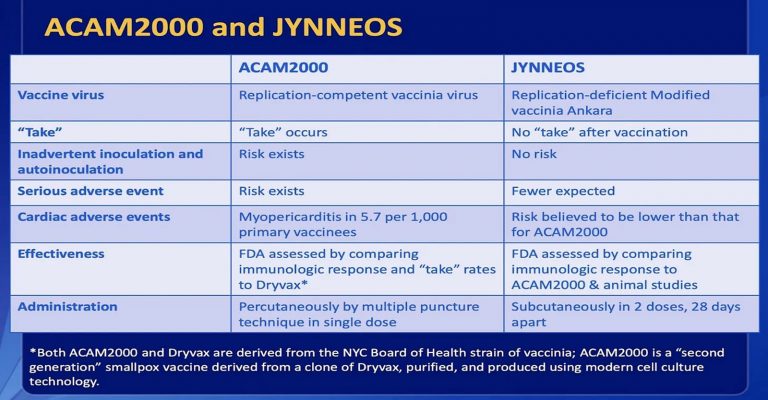If Bayer Really Wanted to Stand With Farmers, It Would Stop Selling Them Toxics + More
The Defender’s Big Food NewsWatch brings you the latest headlines related to industrial food companies and their products, including ultra-processed foods, food additives, contaminants, GMOs and lab-grown meat and their toxic effects on human health. The views expressed in the excerpts from other news sources do not necessarily reflect the views of The Defender.
Op-Ed: If Bayer Really Wanted to Stand With Farmers, It Would Stop Selling Them Toxics
Lee Johnson’s lymphoma lesions made even wearing a cotton shirt painful as he sat in the front of the courtroom on August 7, 2018, for the closing arguments in his lawsuit against the chemical company Bayer for links between his cancer and the company’s most widely sold herbicide, Roundup.
After three days of jury deliberations, Bayer was found guilty of hiding the truth about its products’ health risks to farmers and groundskeepers like Johnson. It was ordered to pay $289 million in damages.
In the wake of that trial and the first wave of additional ones, thousands of pages of internal corporate documents became publicly available, most of them from Monsanto, the original manufacturer of Roundup that Bayer acquired in 2018. The documents clearly show the company had evidence linking Roundup’s key ingredient, glyphosate, to cancer as far back as 1983. The documents also reveal a multi-million dollar PR effort over years to shape the story of glyphosate and thwart regulation. The use of this cancer-linked chemical has increased in the U.S. more than 10-fold since.
Now, facing billions of dollars in payouts from settlements and trials by farmers and homeowners suffering from non-Hodgkin’s lymphoma, and with the scientific case mounting on Roundup’s risks — including ties to leukemia, kidney and liver disease, preterm birth and neurodevelopmental problems — Bayer has launched a new PR blitz to promote its beleaguered herbicide. A full-page ad in the Washington Post promotes the “safety and benefits” of Roundup. And a recently launched website called Modern Agriculture Alliance calls on communities to “Stand with farmers, not trial lawyers.”
Toxic Chemical Exposure During Pregnancy Linked to Serious Health Issues by Elementary School
Chemical toxins are everywhere — in our water, food, air and soil. Exposure to those toxins during pregnancy can create serious health issues in elementary school children that can affect their lives for years to come, a new study found.
Children born to European mothers exposed to four families of chemicals that disrupt the body’s endocrine (hormone) system had elevated levels of metabolic syndrome at ages 6 to 11. Metabolic syndrome can include obesity, elevated blood pressure, and abnormally high cholesterol and insulin resistance, which is a precursor to type 2 diabetes.
Called “forever chemicals” because they fail to break down fully in the environment, PFAS have been used since the 1950s to make consumer products nonstick, oil- and water-repellent, and resistant to temperature change. Some of the most studied PFAS, such as PFOA (perfluorooctanoic acid) and PFOS (perfluorooctane sulfonic acid), have been linked to serious health problems such as cancer, obesity, thyroid disease, high cholesterol, decreased fertility, liver damage and hormone disruption, according to the EPA.
Toxic heavy metals in the soil and water include lead and arsenic — studies have found alarming levels in manufactured baby food. There is no safe level of lead, while arsenic, mercury and other heavy metals can harm the body and brain at relatively low doses, experts say.
How a Growing Enthusiasm for Raw Milk Is Clashing With Avian Flu Fears
A growing bird flu epidemic has spread through American cattle and poultry, sparking harsh warnings from federal health and food safety regulators to avoid raw milk and eggs.
It’s all coming amid a surge in the number of people drinking raw, non-pasteurized milk, a trend that could lead to dangers not limited to bird flu.
The Centers for Disease Control and Prevention (CDC) and Food and Drug Administration have repeatedly warned in recent weeks to avoid raw dairy products due to the bird flu outbreak. The urgency in the CDC warnings is connected to a rise in the sales of raw milk.
Despite the warnings from federal regulators and food scientists, sales of raw milk have actually increased since the bird flu epidemic first appeared in the U.S.
Sales for raw dairy products have gone up by at least 25% compared to last year, according to the market research firm NielsenIQ.
Adding Just a Few Ultra-Processed Foods to a Healthy Diet Raised Risk of Cognitive Decline and Stroke, Study Says
Eating more ultra-processed foods is linked to a higher risk of cognitive decline and stroke, even if a person is trying to adhere to a Mediterranean diet, the DASH diet or the MIND diet, a new study found.
All three diets are plant-based, focused on consuming more fruits and vegetables, whole grains, beans and seeds while limiting sugar, red meat and ultra-processed foods.
“If you increased your ultra-processed food intake by 10% in the study, it increased your risk of cognitive impairment by 16%,” said cardiologist Dr. Andrew Freeman, director of cardiovascular prevention and wellness at National Jewish Health in Denver. He was not involved in the study.
On the flip side, eating more unprocessed or minimally processed foods was linked with a 12% lower risk of cognitive impairment, according to the study published Wednesday in the journal Neurology.
New Tests Confirm Milk From Flu-Infected Cows Can Make Other Animals Sick — and Raise Questions About Flash Pasteurization
New lab experiments with milk from cows infected by H5N1 influenza, known as bird flu, confirm that it is infectious, especially when left raw, or untreated, and potentially even when flash pasteurized.
The researchers, from the University of Wisconsin School of Veterinary Medicine, are part of a federally funded program called the Centers of Excellence for Influenza Research and Response, or CEIRR. This network has been conducting rapid research to answer pressing questions in the H5N1 outbreak in dairy cattle.
In a research letter posted online on Friday in the New England Journal of Medicine, the researchers describe the results of experiments using milk from four infected cows — two from New Mexico and two from Kansas.
Because H5N1 virus is considered a select agent, it was handled in a high-security Biosafety Level 3 lab at the University of Wisconsin, using strict safety protocols. First, they confirmed the raw milk was chock-full of the H5N1 virus. Then, they stored some of the raw milk at refrigerator temperature to see if levels of the virus in the milk would drop off over time. Over 5 weeks, viral levels in raw milk dropped a bit, but not much.
The U.S. Centers for Disease Control and Prevention says the risk to the general public is low, but people should not eat or drink raw milk or products made from it.
Clues From Bird Flu’s Ground Zero on Dairy Farms in the Texas Panhandle
At the moment, the bird flu hasn’t adapted to spread from person to person through the air like the seasonal flu. That’s what it would take to give liftoff to another pandemic. This lucky fact could change, however, as the virus mutates within each cow it infects. Those mutations are random, but more cows provide more chances of stumbling on ones that pose a grave risk to humans.
Why did it take so long to recognize the virus on high-tech farms in the world’s richest country? Because even though H5N1 has circulated for nearly three decades, its arrival in dairy cattle was most unexpected. “People tend to think that an outbreak starts at Monday at 9 a.m. with a sign saying, ‘Outbreak has started,’” said Jeremy Farrar, chief scientist at the World Health Organization. “It’s rarely like that.”
An early indication that something had gone awry on farms in northwestern Texas came from devices hitched to collars on dairy cows. Turley describes them as “an advanced fitness tracker.” They collect a stream of data, such as a cow’s temperature, its milk quality, and the progress of its digestion — or, rather, rumination — within its four-chambered stomach.
What farmers saw when they downloaded the data in February stopped them in their tracks. One moment a cow seemed perfectly fine, and then four hours later, rumination had halted. “Shortly after the stomach stops, you’d see a huge falloff in milk,” Turley said. “That is not normal.”
Bayer Sees ‘Existential’ Threat From Roundup Suits, CEO Says
Bayer AG Chief Executive Officer Bill Anderson said the wave of lawsuits over its Roundup weedkiller is an “existential” threat to the company and farmers, ratcheting up the stakes as it considers a controversial legal maneuver.
“The glyphosate litigation topic is an existential topic for our company because it does threaten to remove our ability to continue to innovate for farmers and for food security,” Anderson said in a speech at the Executives’ Club of Chicago on Thursday, referring to Roundup’s key ingredient.
Many U.S. Dairy Workers yet to Receive Protective Gear for Bird Flu
Many U.S. dairy farms have not yet increased health protections against bird flu for employees during an outbreak in cows, according to workers, activists and farmers, worrying health experts about the risk for more human infections of a virus with pandemic potential.
Epidemiologists are concerned the virus could potentially spread and cause serious illnesses as farmers downplay the risk to workers while employees are not widely aware of cases in U.S. cattle.
Three dairy workers, seven activists and two lawyers who assist farm employees told Reuters that dairy owners have not offered equipment like face shields and goggles to staff who spend 10- to 12-hour days side-to-side with cows. Three large dairy companies with tens of thousands of cows declined to comment on their procedures.
Sparks Fly Over SNAP at Contentious Markup of House Farm Bill
Democrats and Republicans on the House Agriculture Committee sparred over food aid on Thursday at the markup of the chamber’s version of the $1.5 trillion omnibus farm bill.
The issue set off partisan fireworks at the contentious session, during which representatives from both sides of the aisle took to the dais to extol the virtues of bipartisanship while accusing their opposite numbers of throwing those values in the trash.
The proposed legislation, unveiled by Committee Chair Glenn “G.T.” Thompson (R-Pa.) last week, would draw on SNAP as a source of funds to direct subsidies to commodity farmers, largely a few thousand growers of rice, cotton and peanuts.
Research supports elements of both lawmakers’ statements. Participation in SNAP means that children are far less likely to be food-insecure, which is very bad for long-term mental and emotional health. At the same time, a 2023 study found that children on SNAP “were more likely to have elevated disease risk and consume more sugar-sweetened beverages” than those not on the program.
Critics Want ‘Mature’ Discussion About Pesticide
Canada’s National Observer reported:
Canada must start having ‘mature’ conversations about reducing glyphosate and other pesticide use after revelations that the country’s agriculture department downplayed warnings about the controversial chemical, advocates say.
Last week, Canada’s National Observer revealed David Cox, a former deputy director at Agriculture and Agri-Food Canada, had last year raised “red flags” about the federal government’s failure to assess health risks posed by the controversial herbicide glyphosate, a key ingredient in Roundup, before leaving the ministry. The trove of emails was obtained through an access to information request.
Glyphosate-based herbicides are by far Canada’s most widely-used pesticide, with over 50 million kilograms of the chemical sold in Canada in 2020. Farmers use it to kill weeds, and it is sprayed across forest-cut blocks in most provinces except Quebec to kill deciduous trees. A recent Health Canada study found that the average Canadian has some amount of glyphosate in their urine.
Researchers have found the chemical, which is both a pesticide and herbicide, can cause cancer, is toxic to the nervous system and harms animals’ gut bacteria. Glyphosate is considered to be potentially carcinogenic by the International Agency for Research on Cancer and can harm male fertility.
Suggest a correction







